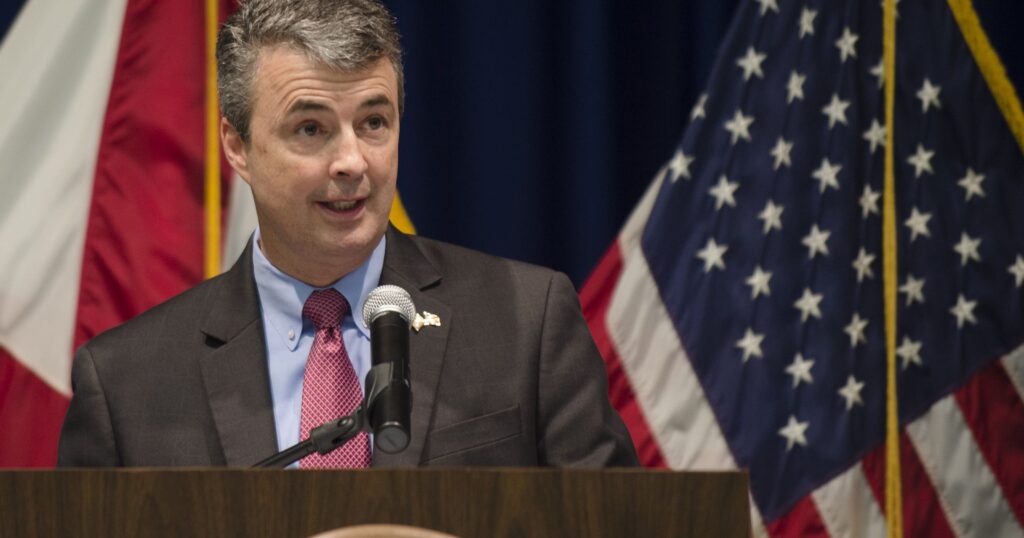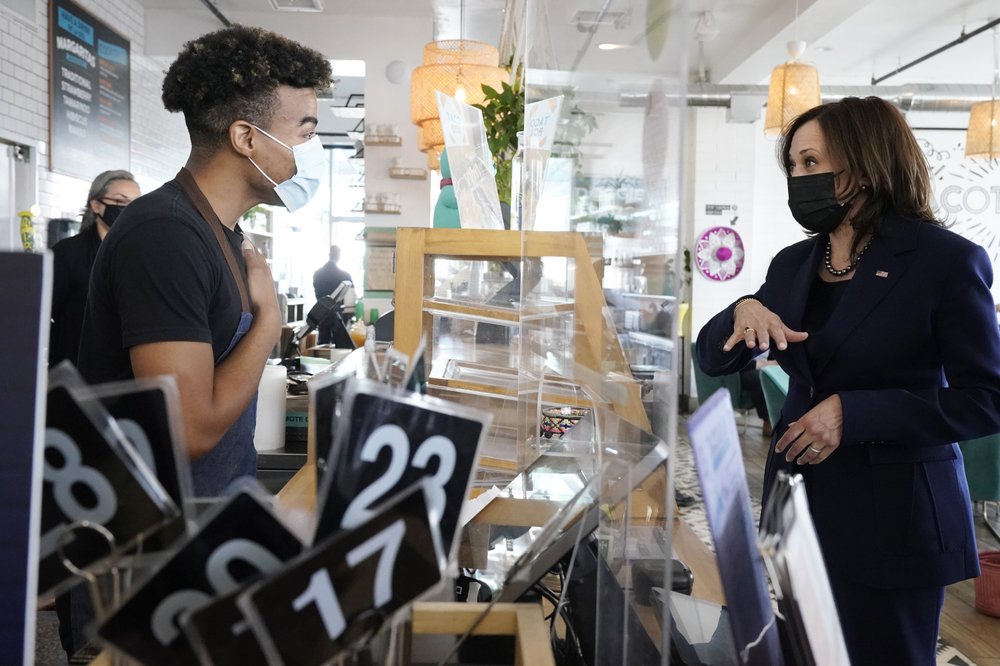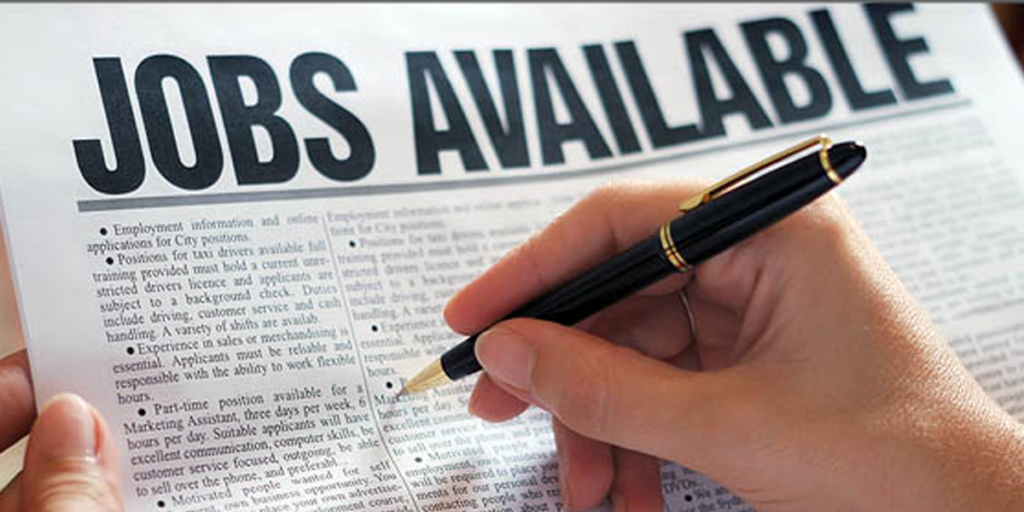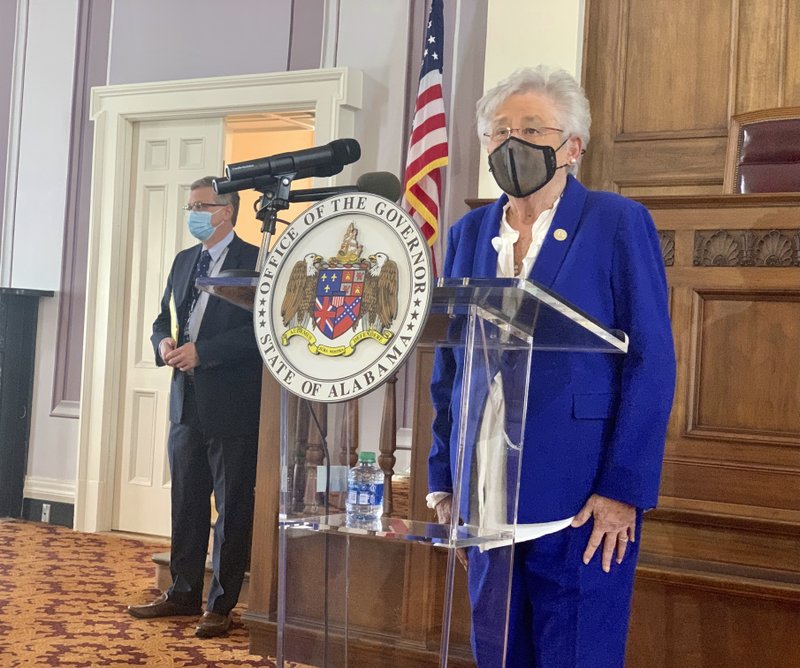Steve Marshall joins 20 other leaders, urging clarity in COVID-19 Act

Attorney General Steve Marshall signed a letter today asking the U.S. Department of Treasury to take action to ensure that the American Rescue Plan Act doesn’t take away a state’s authority to implement state tax policy. Also signing the letter were attorneys general from Arizona, Arkansas, Florida, Idaho, Indiana, Kansas, Kentucky, Louisiana, Mississippi, Missouri, Montana, Nebraska, Oklahoma, South Carolina, South Dakota, Texas, Utah, and Wyoming. Leaders warn that certain provisions of the Act forbid states from using COVID-19 relief funds to “directly or indirectly offset a reduction in…net tax revenues” resulting from state laws or regulations that reduce tax burdens, whether by cutting rates or by giving rebates, deductions, credits, “or otherwise.” This language could be used to deny the states the ability to cut taxes in any manner, even if they would have provided tax relief with or without the prospect of COVID-19 relief funds. The attorneys general have requested that the Treasury use a more sensible interpretation of the language in the Act because if not, it could be seen as an intrusion on the sovereignty of the States. Attorney General Mark Brnovich stated, “A view of state tax policy this expansive by the federal government would not only be a giant overreach, but it would represent an unprecedented and unconstitutional infringement upon Arizona’s sovereignty,” said Attorney General Mark Brnovich. “The pandemic has wreaked havoc on the economy, and states like Arizona must be independent and free to determine their own tax policies without the threat of losing federal funds.” Brnovich wants the Treasury to clarify their interpretation of this language by March 23. He wants to ensure that the Act doesn’t stop states from providing tax relief and will take further action if clarity isn’t provided. A copy of the letter can be viewed here. 21 AG’s are urging the US Treasury to take immediate action to ensure the American Rescue Plan Act does not strip States of their core authority to implement basic state tax policy. View letter here: https://t.co/qUod6HeMOH — Mark Brnovich (@GeneralBrnovich) March 16, 2021
Citing COVID risks state Department of Public Health officials warn against St. Patrick’s Day celebrations

The Alabama Department of Public Health has issued a press release urging Alabamans to avoid large crowds during St. Patrick’s Day. A recent press release stated, “ADPH is advising against close, indoor gatherings with non-household members ahead of St. Patrick’s Day, in an effort to prevent further coronavirus spread. The risk of close contact with others, especially when combined with increased alcohol use, can lead to asymptomatic spread. The safest way to celebrate St. Patrick’s Day this year is to gather virtually or with people who live with you.” An Alabama Public Health Facebook post stated, “COVID-19 continues actively circulating in Alabama, including the more transmissible B.1.1.7 (UK) variant. ADPH is advising against close, indoor gatherings with non-household members ahead of St. Patrick’s Day, in an effort to prevent further spread. The risk of close contact with others, especially when combined with increased alcohol use, can lead to asymptomatic spread. The safest way to celebrate St. Patrick’s Day this year is to gather virtually or with people who live with you.” The Centers for Disease Control and Prevention also agreed that avoiding indoor gatherings was necessary. Instead the CDC said that any gatherings should be outdoors, with mask-wearing and social distancing. “Attending gatherings to celebrate St. Patrick’s Day increases your risk of getting and spreading COVID-19. The safest way to celebrate St. Patrick’s Day this year is to gather virtually, with people who live with you, or outside and at least 6 feet apart from others.,” the CDC said in a statement. Gov. Kay Ivey has extended the Safer at Home order until May 7th, but the mask mandate will end Friday, April 9.
Kamala Harris, Jill Biden on the road to promote aid plan

From a vaccination site in the desert West to a grade school on the Eastern seaboard, President Joe Biden’s top messengers — his vice president and wife among them — led a cross-country effort Monday to highlight the benefits of his huge COVID relief plan. Biden, Vice President Kamala Harris, and their spouses have launched an ambitious tour this week to promote the $1.9 trillion plan as a way to battle the pandemic and boost the economy. The roadshow — dubbed the “Help is here” tour by the White House — began with Harris visiting a COVID-19 vaccination site and a culinary academy in Las Vegas and first lady Jill Biden touring a New Jersey elementary school. Biden himself heads out Tuesday. “We want to avoid a situation where people are unaware of what they’re entitled to,” Harris said at the culinary academy. “It’s not selling it; it literally is letting people know their rights. Think of it more as a public education campaign.” The White House is wasting no time promoting the relief plan, which Biden signed into law last week, looking to build momentum for the rest of his agenda and anxious to avoid the mistakes of 2009 in boosting that year’s recovery effort. Even veterans of Barack Obama’s administration acknowledge they did not do enough then to showcase their massive economic stimulus package. Biden stayed back in Washington for a day, declaring that “hope is here in real and tangible ways.” He said the new government spending will bankroll efforts that could allow the nation to emerge from the pandemic’s twin crises, health and economic. “Shots in arms and money in pockets,” Biden said at the White House. “That’s important. The American Rescue Plan is already doing what it was designed to do: make a difference in people’s everyday lives. We’re just getting started.” Biden said that within the next 10 days, his administration will clear two important benchmarks: distributing 100 million stimulus payments and administering 100 million vaccine doses since he took office. To commemorate those milestones, Biden and his top representatives are embarking on their most ambitious travel schedule of his young presidency, visiting a series of potential election battleground states this week. The sales pitch was leaving Republicans cold. Senate GOP leader Mitch McConnell dismissed the target of doses that Biden set when he took office as “not some audacious goal” but just the pace that he inherited. And he mocked Biden’s talk of Americans working toward merely being able to gather in small groups by July 4th as “bizarre.” The Biden plan cleared Congress without any backing from Republicans, despite polling that found broad public support. Republicans argued the bill was too expensive, especially with vaccinations making progress against the virus, and included too many provisions not directly linked to the pandemic. After beginning the sales campaign with high-profile speeches, Biden will head to Pennsylvania on Tuesday and then join Harris in Georgia on Friday. Others on his team are visiting the electorally important states of Nevada, Colorado, New Mexico, and New Hampshire. The trip Monday marked Harris’ first official journey in office and included an unscheduled stop at a vegan taco stand as well as a coffee stand at the Culinary Academy Las Vegas. White House press secretary Jen Psaki said, “We want to take some time to engage directly with the American people and make sure they understand the benefits of the package and how it is going to help them get through this difficult period of time.” The White House has detailed a theme for each day, focusing on small businesses, schools, home evictions and direct checks to most Americans. Jill Biden was joined by New Jersey Gov. Phil Murphy on a tour Monday of Samuel Smith Elementary School in Burlington, where she highlighted steps the school took to reopen. But her tour revealed the challenges ahead: In one classroom she visited, only two students were in attendance for in-person learning while the other 17 were virtual. The first lady sat down at a computer to say hello to the remote learners. “I just I love being here at a school again: Educators, parents and students, the entire school has come together to bring kids back to the classroom,” she said. “But even with your best efforts, students can’t come, they can’t come in every day, which means that their parents are still having to take time off of work or figure out childcare solutions. And this school, like schools across this country, can’t fully reopen without help.” The president on Monday also announced that he had chosen Gene Sperling, a longtime Democratic economic policy expert, to oversee the massive stimulus package, the role Biden himself had played for the 2009 economic rescue package. The goal, Biden said, is to “stay on top of every dollar spent.” “I learned from my experience implementing the Recovery Act just how important it is to have someone who can manage all the moving parts with efficiency, speed and integrity, and accountability,” said the president. The plan’s key features include direct payments of $1,400 for most single taxpayers, or $2,800 for married couples filing jointly, plus $1,400 per dependent — a total of $5,600 for a married couple with two children. The payments phase out for people with higher incomes. An extension of federal unemployment benefits will continue through Sept. 6 at $300 a week. There’s $350 billion for state, local and tribal governments, $130 billion for K-12 schools, and about $50 billion to expand COVID-19 testing, among other provisions. Restaurants and bars that were forced to close or limit service can take advantage of a new multibillion-dollar grant program, and the plan also has tens of billions of dollars to help people who have fallen behind on rent and mortgage payments. Harris’ husband, Doug Emhoff, joined his wife for the Western trip, visiting a food relief organization Monday in Las Vegas and participating in a listening session with the organization’s partners. In
Jobless rate at 4.3%, lowest of pandemic

Alabama’s unemployment rate for January declined to 4.3%, the lowest level since the beginning of the coronavirus pandemic a year ago, the state said Monday. While still well above the pre-pandemic level of 2.7% of January 2020, the rate was better than the revised December unemployment rate of 4.7%. It was also below the U.S. unemployment rate of 6.3% for the month, and Department of Labor said. Labor Secretary Fitzgerald Washington said the drop to a new low level of joblessness for the pandemic was encouraging. “While we are still not where we were before this year of massive change, we are making progress,” he said in a statement. “More people were employed this month, and fewer were unemployed, which is always good news.” The January rate represented 97,726 people without work statewide compared to 106,318 in December. Roughly 2.16 million people were employed in the state, an increase of about 2,600 from December. Shelby County had the state’s lowest unemployment rate at 2.3%, followed by Blount County at 2.4% and Cullman and Limestone counties, which both had jobless rates of 2.5%. Wilcox County had the state’s highest unemployment rate at 12.4%. Republished with the permission of the Associated Press.
Birmingham likely to extend mask order as state mandate ends

Leaders in Alabama’s largest city likely will extend a mandate requiring face masks in public to slow the spread of the new coronavirus despite the state’s plan to end the statewide rule next month, said City Council President William Parker. While Gov. Kay Ivey has said the state order will expire April 9, Parker said officials in Birmingham had been in discussions with medical experts and will push to keep a requirement in place for face masks in public places. “I feel very confident that there will be a mask ordinance for the city of Birmingham,” he said Saturday at the opening of a new vaccination site. A City Council vote likely will be held April 6, he said. Birmingham is located in Jefferson County, which is among multiple counties the Alabama Department of Public Health rates as having a high infection rate over the last two weeks even as cases and hospitalizations decline overall in the state during a surge in vaccinations. More than 10,320 people in Alabama have died of COVID-19, the illness caused by the virus, and more than 503,000 have tested positive. While about 400 people are hospitalized with the illness statewide, that is the lowest since April and down from a peak of more than 3,000 in January. Republished with the permission of the Associated Press.
Former deputy indicted on child porn charges

A former Alabama sheriff’s deputy has been indicted on about two dozen child pornography charges, authorities said Monday. Phillip Wayne Humphries, 56, of Trussville was indicted by grand jurors in Jefferson County, where he previously worked as a sheriff’s deputy, the attorney general’s office said in a statement. Humphries was arrested on a single charge of possessing obscene material in 2019, when he resigned after coming under investigation. He had worked as a deputy for about two decades. Humphries, who already is free on a bond of $15,000, asked a court to reject a move to increase his bond to $375,000 because of the additional charges, records show. Humphries recently underwent “multiple amputations,” uses a wheelchair and is not a risk to flee, his attorney told a court. An attorney for Humphries did not immediately return an email seeking comment on the indictment. Republished with the permission of the Associated Press.


